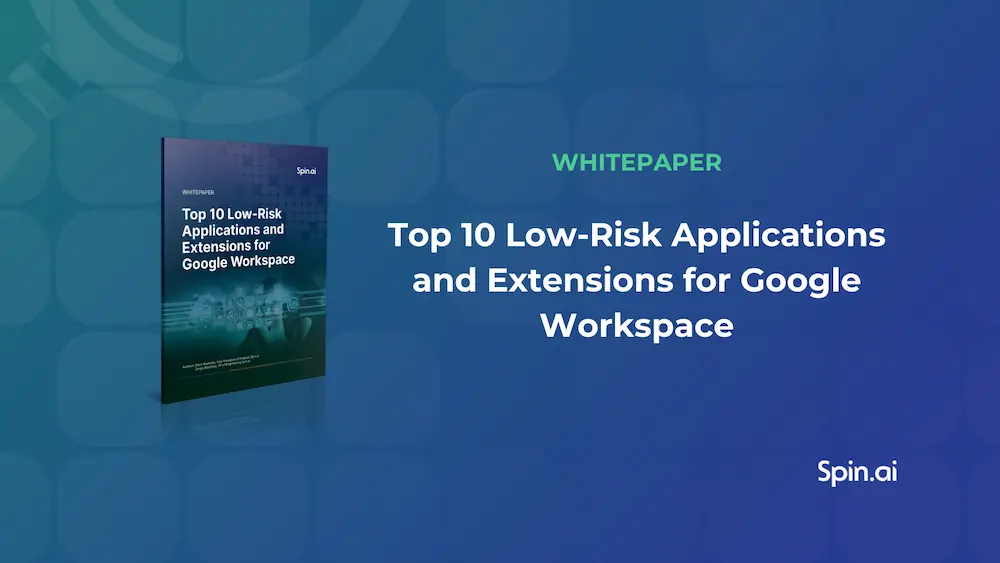Cloud Ransomware Protection for Top Cloud Storage Solutions

Ransomware continues to evolve as a significant threat to organizations worldwide, making it imperative for businesses to stay updated on the latest developments in cybersecurity. In recent years, high-profile ransomware attacks have underscored the destructive capabilities of this type of malware. Despite the growing awareness, there remains a common misconception that storing data in the public cloud provides immunity against SaaS ransomware attacks. However, it’s crucial to understand that while cloud storage offers robust infrastructure, it alone does not guarantee protection against ransomware
Cloud storage solutions, such as those provided by Amazon, Microsoft, and Google, offer various features that can aid in combating malware. However, organizations must be vigilant and proactive in implementing additional layers of security to mitigate the risks effectively
Let’s take a closer look at the top cloud storage options available and what they offer in terms of fighting malware. We’ll also dig into the best ransomware protection solution that can act as a strong protective barrier on top of public cloud storage, helping to minimize the risk of harmful ransomware attacks
Top Cloud Security Concerns
As more organizations transition to the cloud or adopt hybrid cloud environments, the threat landscape expands accordingly. Attackers are shifting their focus towards cloud, recognizing them as lucrative targets. This trend emphasizes the importance of implementing robust security measures to safeguard data stored in the cloud
Despite popular misconceptions, public cloud storage does not offer foolproof protection against malware or ransomware attacks. While major cloud vendors boast resilient infrastructure, the responsibility for securing data ultimately lies with the organization. Cloud storage providers typically do not offer native backup solutions, leaving organizations vulnerable to data loss in the event of a ransomware infection
In a hybrid cloud environment where there may be data that lives on-premise and some type of sync happening between private and public clouds, there is a risk of an on-premise malware infection spreading to public cloud resources. Many cloud storage solutions offer certain sync utilities that simply synchronize local files that exist on your hard drive out to the public cloud. If a ransomware infection encrypts files at the local hard drive level, these encrypted files simply get synchronized out to the public cloud, so files are encrypted there as well
Top Cloud Storage Solutions
While keeping the dangers and misconceptions listed above in mind, there are certainly advantages and tremendous strengths found inherently in certain aspects of cloud infrastructure that can help to prevent malware infection and limit the scope of damage, or potentially recover corrupted data
Features such as versioning objects on file storage, offered by top cloud storage solutions, enable organizations to revert files to previous versions unaffected by encryption. Versioning allows keeping multiple variants of an object stored in cloud storage. The benefit of versioning, as it relates to recovering from data corruption introduced by ransomware as an example, is that we can simply roll files back to the previous version of the file, before the updated version (due to being encrypted) was introduced
Versioning is not supported by all public cloud storage solutions or even turned on by default, so organizations can’t simply rely on this feature to recover data if a mass ransomware infection has encrypted business-critical data. Additionally, not all public cloud vendors provide the tools needed to leverage this functionality on a mass scale
The top public cloud storage solutions generally offer very good identity management mechanisms that allow for policy based and least privilege access. This concept is known as cloud Identity and Access Management or IAM. Cloud IAM allows organizations to use or create roles and restrict access to resources to only those user identities who need access. Additionally, policy based access allows defining which users are assigned to which role and helps to limit the scope of a potential damage path if corruption due to ransomware is introduced by a particular user. Cloud IAM also helps to centralize control and access of public cloud resources so that system administrators have a better view of what is going on across the organization
Even with the native mechanisms that are contained in public cloud storage systems to bolster security and remediation in the event of a ransomware attack, organizations need a more robust tool to feel safe with data living in public cloud storage. Let’s look at a better way to introduce cloud ransomware protection for top cloud storage solutions
Best Ransomware Protection for Top Cloud Storage Solutions by SpinOne
Introducing SpinOne Ransomware Detection and Response (SpinRDR) for organizations looking for the best ransomware protection for public cloud storage solutions. SpinOne offers comprehensive data loss prevention and public cloud security solutions for Google Workspace and Microsoft 365 environments. With features such as automated 3x daily scans, backups for disaster recovery, encryption of data in transit and at rest, and proactive alerting, SpinOne provides organizations with a powerful defense against ransomware and other cyber threats. This is all accomplished in a single interface and “single pane of glass” dashboard.
A few of the highlights of the SpinOne solution when thinking about ransomware protection for public cloud include the following:
- Fastest incident response on the market for SaaS ransomware attacks
- 24/7 ransomware monitoring
- Fully automated monitoring, detection, alerting and response. No human factor required
- Advanced API integrations are available with Splunk, ServiceNow, Jira, Datadog, Teams, and Slack to customize notifications on detected incidents from a single dashboard
SpinOne easily integrates in Google Workspace and Microsoft 365 environments, allowing quick deployment and intuitive control over public cloud resources with the ability to restore data that has been compromised, encrypted, or even deleted by malicious programs or users
Moreover, SpinOne incorporates innovative blockchain Single Sign-On technology to ensure secure authentication and access to public cloud resources. By validating user credentials against blockchain-validated checksums, SpinOne eliminates the risk of unauthorized access and impersonation, enhancing overall security posture
Today, organizations who are looking to move to the cloud either with hybrid or full public cloud migrations are well served by forward thinking innovations, by companies like Spin.AI. The technology that Spin.AI provides to organizations is fully GDPR compliant and allows moving to the cloud with confidence, knowing data is secure, and authorized access has been validated
Thoughts on Cloud-Based Cyber Security
In conclusion, while public cloud storage offers scalability and reliability, it’s essential for organizations to implement robust cybersecurity measures to protect against ransomware and other threats effectively. By combining native cloud security features with specialized solutions like SpinOne, organizations can bolster their defenses and safeguard their data in the cloud
Was this helpful?
How Can You Maximize SaaS Security Benefits?
Let's get started with a live demo
Latest blog posts
Beyond Add-Ons: Elevating Browser Governance Against Malicious and ...
May 16, 2024Browser extensions, plugins, add-ons – these tools may have many names but they have even... Read more
Regulations and Best Practices for Office 365 Backups: Europe Edition
May 11, 2024Why do you need special accommodations for Office 365 Backups in Europe? For businesses using... Read more
Top 10 Low-Risk Applications and Extensions for Google Workspace
May 7, 2024Google Workspace is an extremely popular SaaS productivity suite used by millions of organizations today.... Read more


